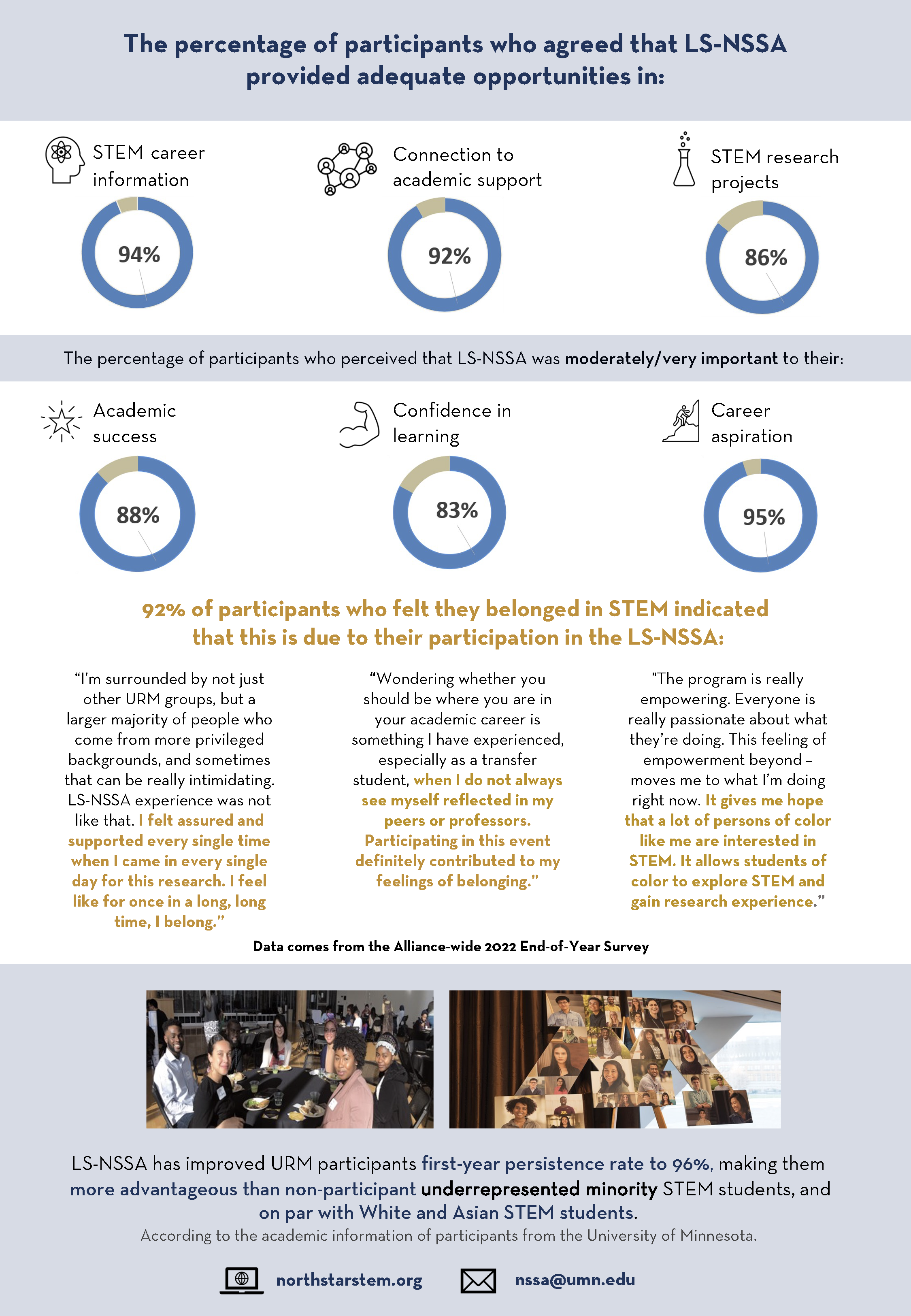Who are we?
The Louis Stokes Alliances for Minority Participation (LSAMP) is a National Science Foundation initiative (NSF Grant #2409134) designed to support students in STEM. By investing in higher education institutions, LSAMP builds a diverse and innovative generation of STEM leaders while fostering student success and retention within a comprehensive STEM Learning Ecosystem.
In Minnesota, this program is known as the Louis Stokes North Star STEM Alliance (LS-NSSA) – a dynamic partnership of 17 colleges and universities and 3 community organizations, including:
- Higher Education Partners: Public and private universities, technical and community colleges, and tribal colleges.
- Community Partners: Science Museum of Minnesota, MN Technology Association, and MN STEM Partnership.
What do we do?
LS-NSSA is committed to creating meaningful opportunities and a supportive community for all students.
Our Goals:
- Double the number of students earning STEM bachelor’s degrees across partner institutions in five years.
- Build an alliance of institutions and community partners to ensure student success.
- Foster institutional change to promote greater diversity and inclusion on campuses.
How We Achieve This:
We provide resources and opportunities tailored to student success.
- Academic Support: Study groups, tutoring, and supplemental instruction.
- Hands-On Experiences: Faculty mentorship, paid research opportunities, and career exploration.
- Professional Growth: Industry internships and site visits, professional development, and graduate school preparation.
- Community Building: Peer mentorship, networking events, and student organizations.
Empowering Success Through Comprehensive Initiatives. Our long-term efforts include:
- Community-building conferences.
- Undergraduate research opportunities.
- Programs to bridge students into college-level STEM programs.
- Industry internships and exposure to professional STEM careers.
- Highlighting groundbreaking research in science, technology, engineering, and math.
LS-NSSA Scholar Benefits:
- Eligibility to apply for the MnDRIVE Summer Research Internship, a paid 8–10-week undergraduate research experience exclusively for LS-NSSA scholars. Open to all scholars in the Alliance.
- Eligibility to request funding to travel to federally sponsored STEM conferences and travel grants to learn and study abroad. All funding decisions take into consideration your level of involvement in LS-NSSA activities; therefore, we strongly encourage you to take advantage of our programming. We expect scholars to engage with us at least 5 hours per semester during the academic year.
- Eligibility to apply to participate in the LSAMP Bridge to Doctorate Programs - a two-year graduate fellowship that covers the cost of tuition and fees, and provides funds for a stipend, supplies, and travel.
- Graduate school application fee waivers.
Access to workshops on graduate school preparation, professional development, STEM career exploration, networking opportunities, and more!
